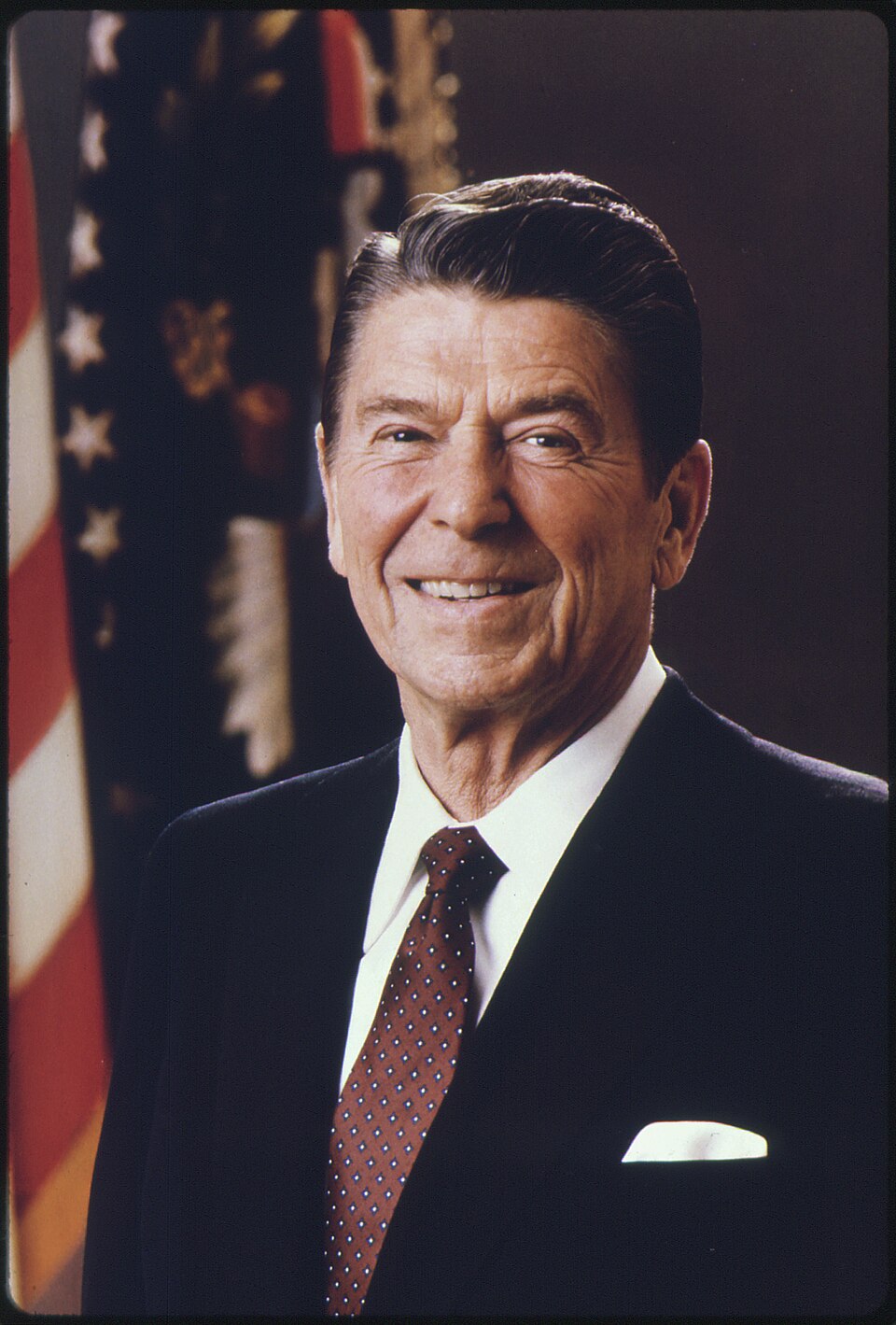Politics
Reagan Warned Against Trade Wars—Trump’s Tariffs Prove His Point
By Jake Beardslee · November 6, 2025
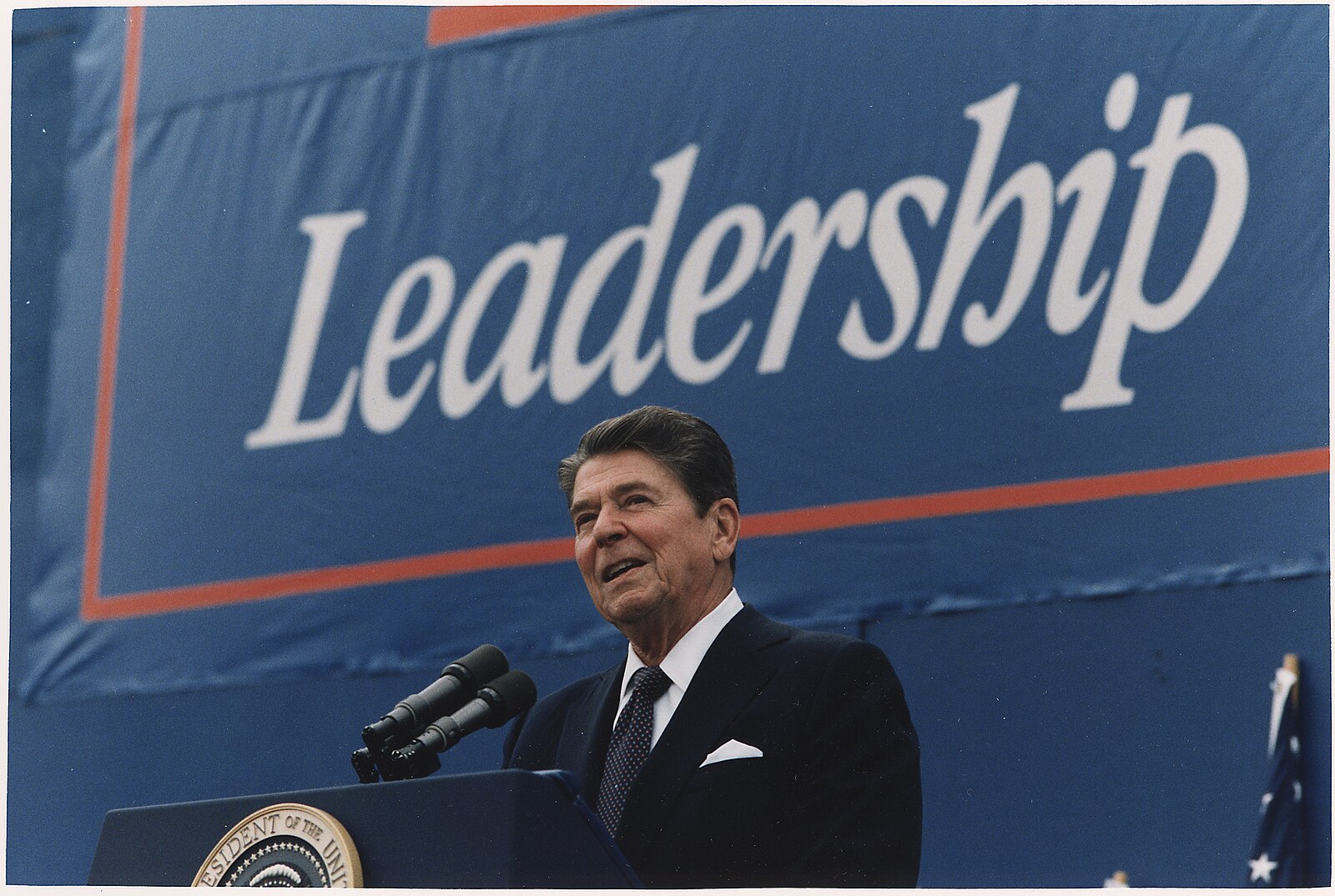
Reagan's 1987 Trade Message in Modern Context
When Ronald Reagan addressed the nation on April 25, 1987, he used his weekly radio broadcast to deliver a message about trade that feels uncannily relevant in today’s tariff-heavy political climate. The speech came at a moment when the United States was pressuring Japan to honor an agreement on semiconductor exports. Reagan had just imposed limited duties on Japanese products, but he made clear that tariffs were a tool of last resort. His words—tempered, deliberate, and grounded in economic memory—draw a sharp contrast to the sweeping global tariff policies now being advanced under Donald Trump’s leadership. PD-US / Wikimedia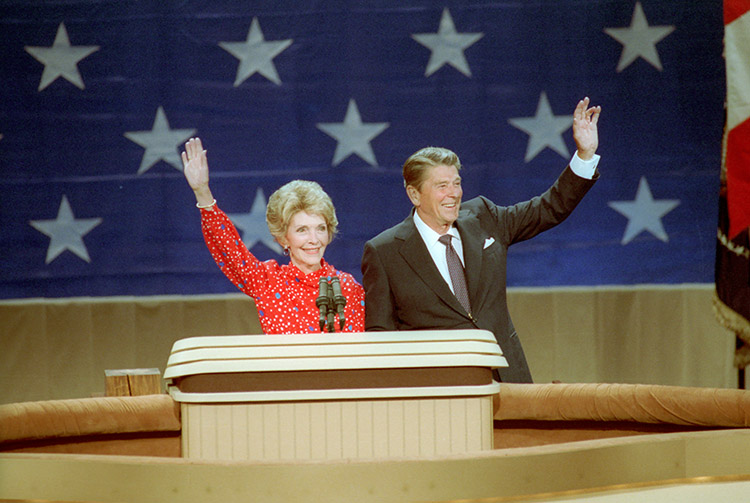
Free and Fair Trade as a Guiding Principle
Reagan’s central premise was that free trade and fair trade were inseparable. He told Americans that while the United States must defend itself against unfair practices, protectionism was no path to prosperity. The 40th president argued that tariffs may look “patriotic” in the short term, but over time they erode competitiveness, raise consumer prices, and invite foreign retaliation. He recalled the devastating effects of the Smoot-Hawley Tariff Act of the 1930s, which economists have long blamed for worsening the Great Depression. His warning was plain: protectionism might begin as a defense of national pride, but it often ends in economic contraction and lost jobs. Ronald Reagan Presidential Library / Wikimedia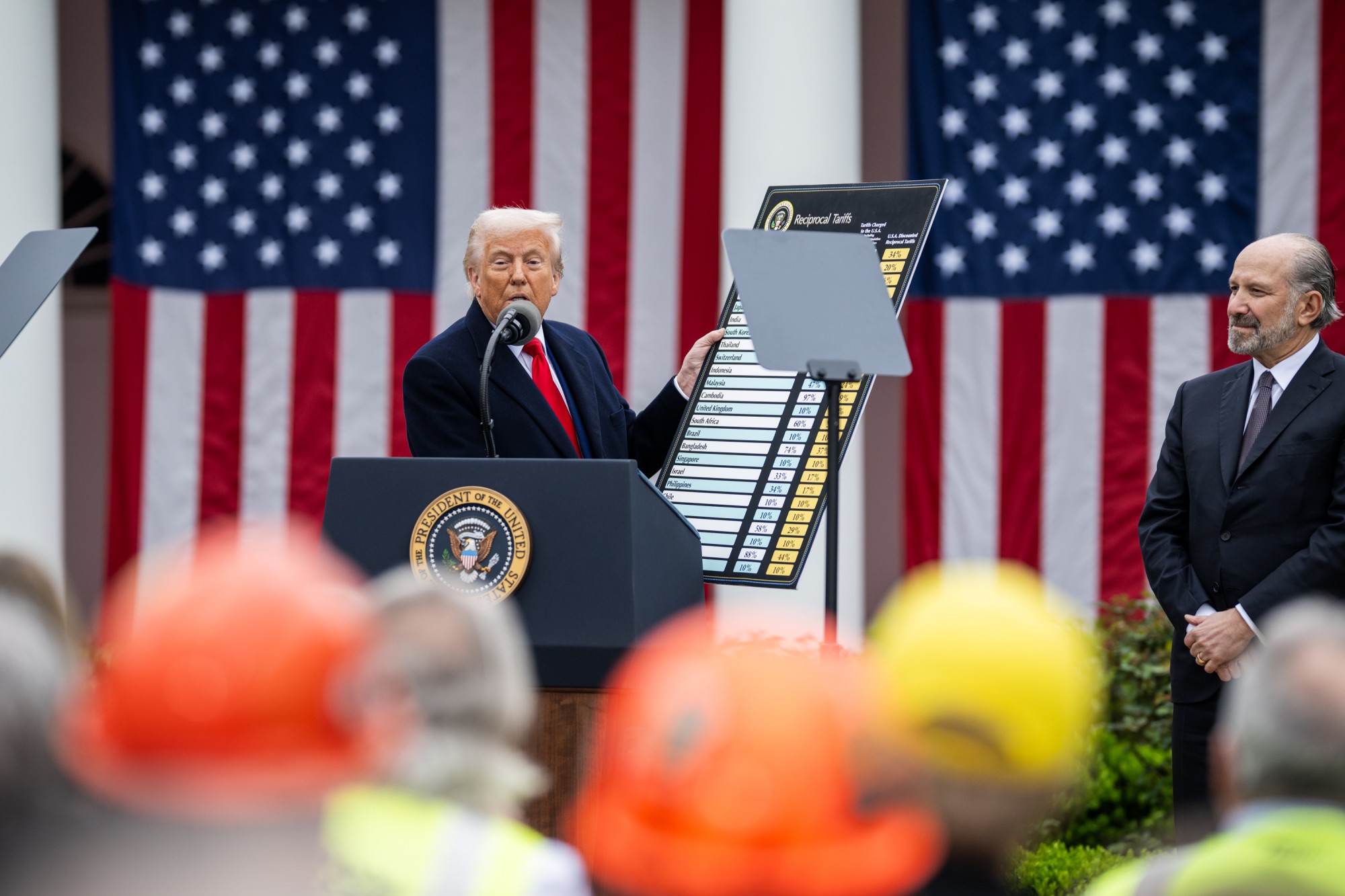
Targeted Tariffs Versus Global Trade Wars
That distinction between targeted response and trade war is what most separates Reagan’s worldview from Trump’s. Reagan viewed tariffs as corrective measures—temporary and specific, meant to restore fair play when a partner violated an agreement. Trump’s approach, by contrast, relies on tariffs as a negotiating weapon. His new global tariff plan envisions duties on virtually all imports, justified as leverage to repatriate manufacturing and punish what he calls “cheating nations.” Reagan’s trade philosophy, cautious and cooperative, would have seen such a policy as a step toward economic isolation. The White House / Wikimedia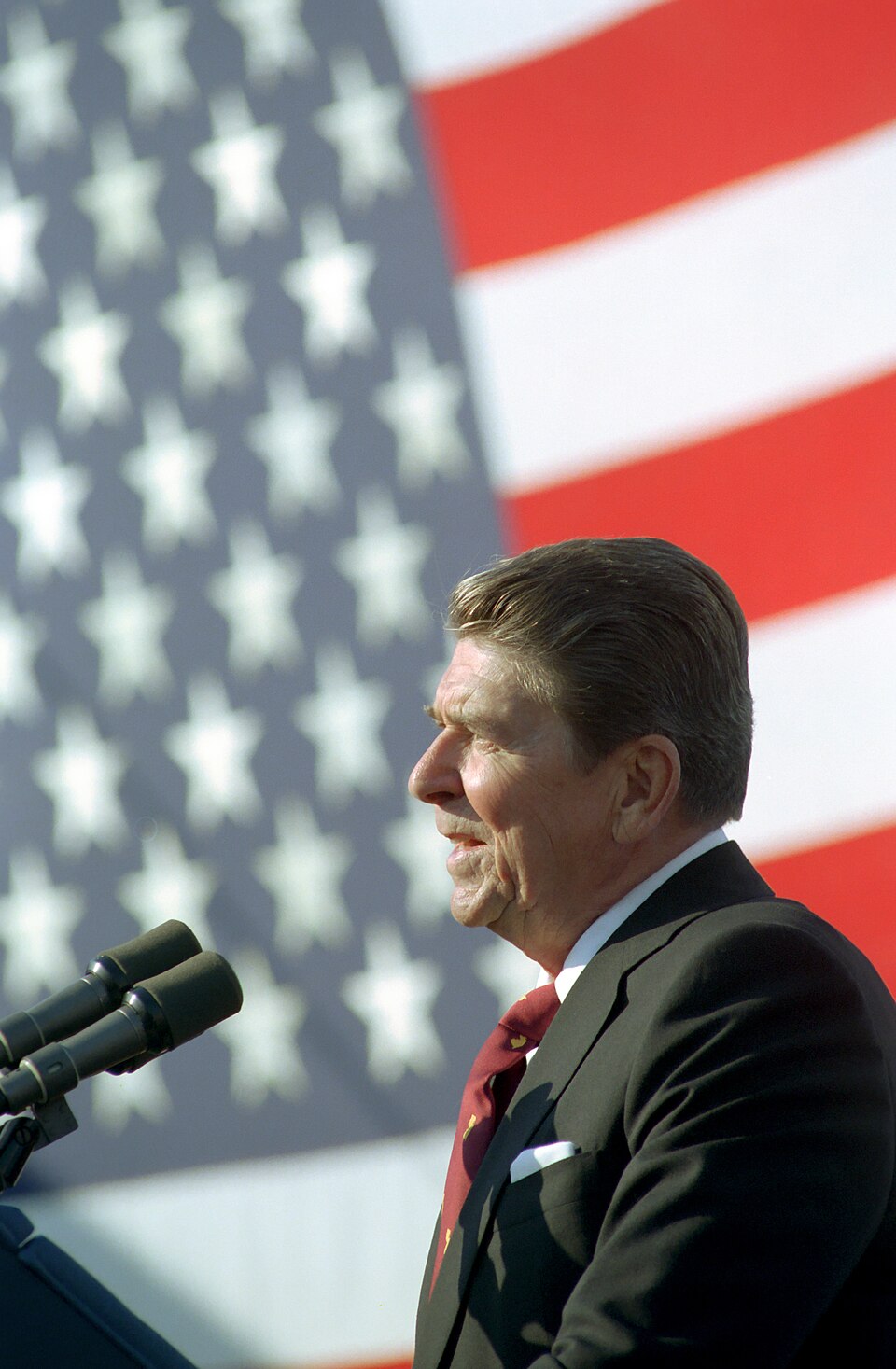
Jobs, Imports, and Exports Intertwined
Reagan also understood that American jobs depended not only on exports but on imports as well. He reminded listeners that more than five million jobs were directly tied to the export sector and that millions more relied on goods coming into the country. He viewed global commerce as a two-way street, warning that cutting off imports would not revive domestic industry—it would simply raise prices and shrink markets. In the 2020s, this principle has only deepened. Supply chains now span continents, and broad tariffs risk harming U.S. manufacturers that depend on foreign materials, while driving up costs for consumers already battling inflation. PD-US / Wikimedia
Lessons from the Great Depression
The historical memory Reagan invoked remains potent. The Great Depression loomed large in his mind, and his generation understood how protectionist fervor can spiral. Today’s trade tensions carry echoes of that era: a world in which retaliatory tariffs pile up, alliances fray, and global demand cools. Reagan’s economic advisers in the 1980s were clear that the U.S. could not wall itself off without inviting the same chain reaction that once crippled world trade. The same logic applies now, as America’s trading partners signal counter-measures and global markets brace for uncertainty. PD-US / Wikimedia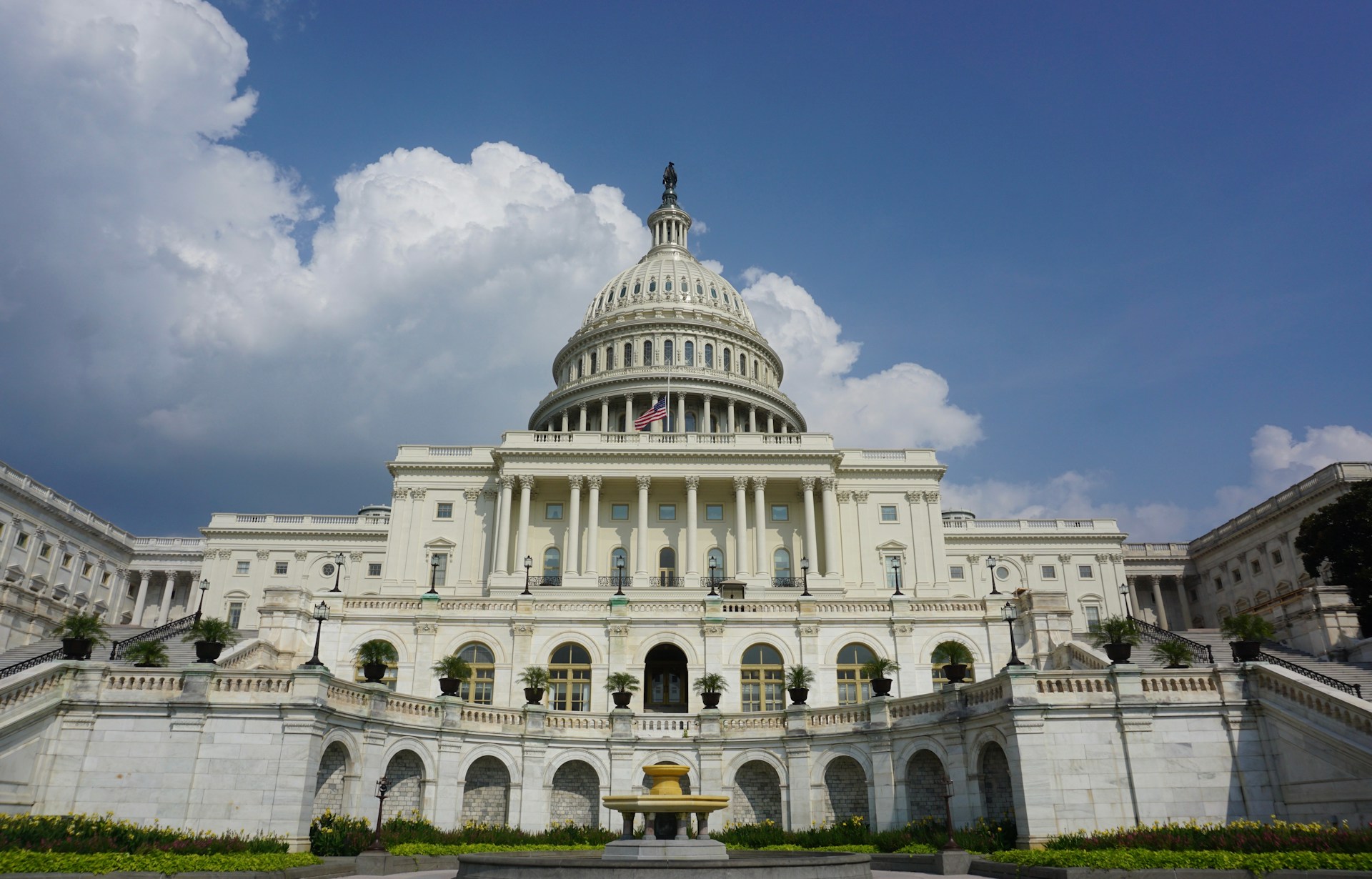
Balancing Executive Power and Legistative Oversight
Reagan also warned Congress not to constrain presidential flexibility in negotiating trade agreements. He feared that protectionist bills could tie the executive’s hands in pursuing long-term national interests. Ironically, the modern debate has flipped that tension on its head. Under Trump, critics say executive power on trade has grown too strong, allowing sweeping tariffs to be imposed unilaterally under broad “national security” justifications. The question Reagan posed in 1987—how to balance fair enforcement with free exchange—now underpins a broader argument about economic governance and accountability. Quick PS / Unsplash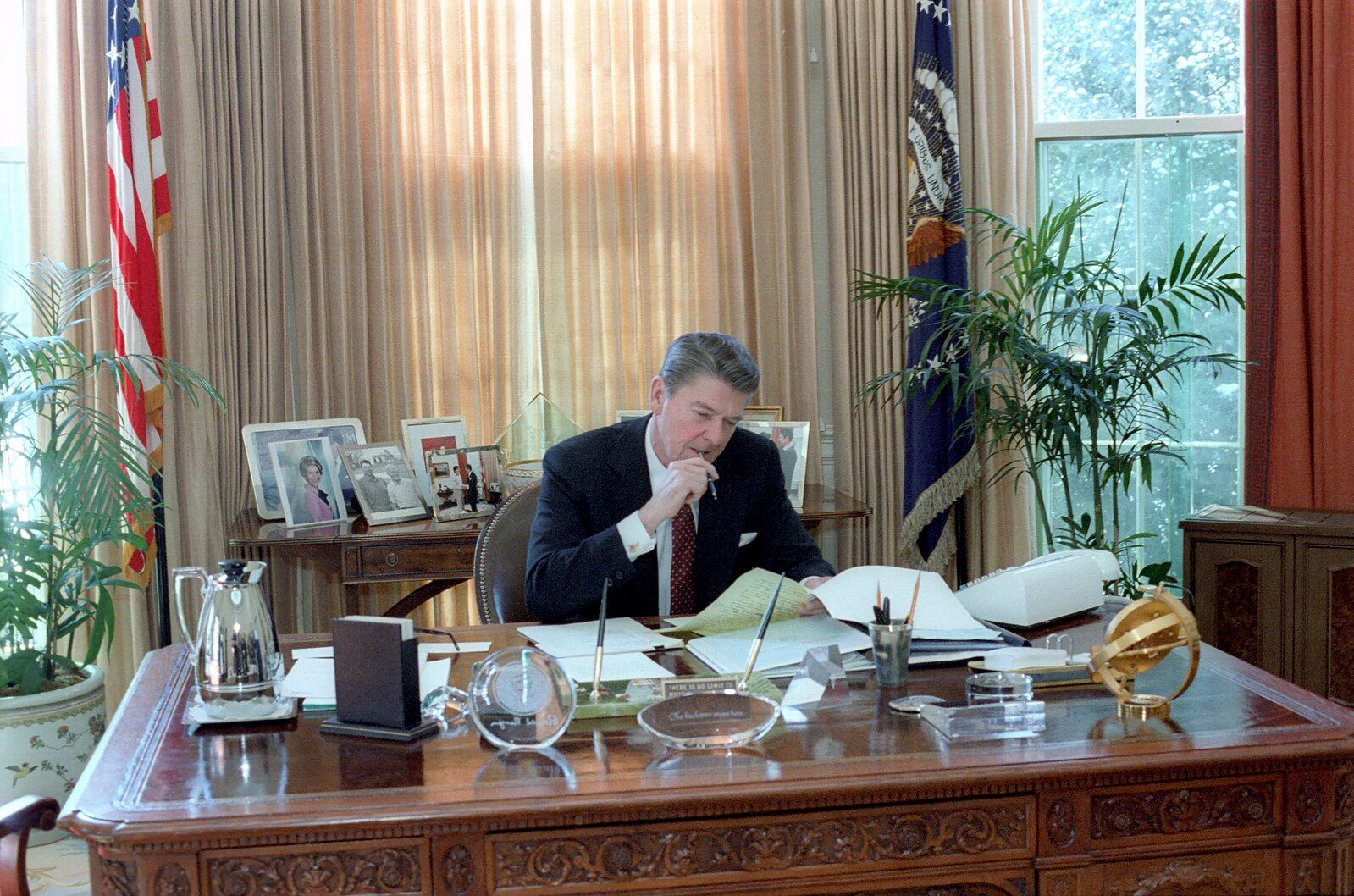
America's Leadership Role in Global Trade
There was also an element of moral leadership in Reagan’s trade vision. He believed America’s strength came from its openness, its innovation, and its willingness to compete on a global stage. He saw tariffs not as tools for national pride but as warning signs of fear—signals that a nation no longer trusted its industries to innovate or adapt. Trump’s strategy, driven by populist appeal and nationalist rhetoric, inverts that ethos. While Reagan used his influence to prevent protectionism from taking hold, Trump has built much of his political identity on reviving it. PD-US / Wikimedia
Economic Fallout and Shifting Supply Chains
The practical results of this shift are already visible. Global manufacturers are re-routing supply chains, consumer goods are becoming more expensive, and allies are reconsidering trade ties that once centered on Washington. Reagan’s economic philosophy stressed cooperation and predictability, the very qualities now eroding amid talk of tariff escalation. His words in 1987—“We want to continue to work cooperatively on trade problems and want very much to lift these trade restrictions as soon as evidence permits”—read almost like a direct rebuttal to today’s zero-sum trade doctrine. Jakub Żerdzicki / Unsplash